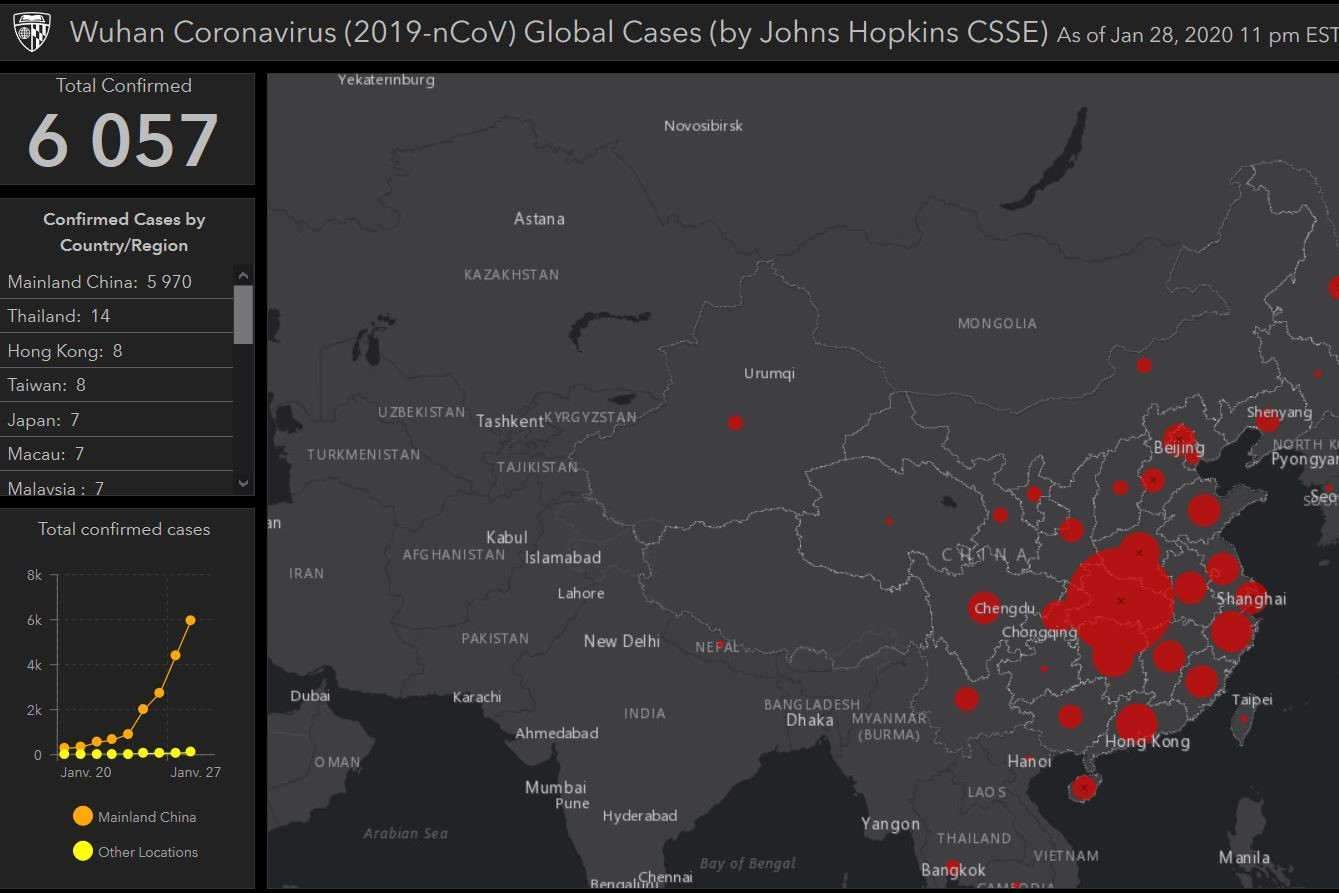Within weeks, the 2009-nCoV coronavirus killed more than 100 people in China and infected thousands. Europe and France have not been spared. Infodujour will follow the spread of the virus in real time.
The coronavirus 2009-nCoV that appeared in Wuhan province, China, in December 2019 is a virus of the coronavirus family (crown-shaped) which includes the viruses of SARS (Severe Respiratory Syndrome) which caused the death of more than 770 people in the early 2000s and MERS (Middle East Respiratory Syndrome). It had never been described before.
The main symptoms are fever and respiratory signs such as coughing or shortness of breath. In more severe cases, the patient may experience acute respiratory distress, acute renal failure, or even multi-visceral failure, which can lead to death.
The virus is probably of animal origin. It has likely mutated to adapt to humans. The Wuhan virus is now transmitted between humans through sneezing or coughing. It is therefore considered that “close” contact is necessary for the transmission of this disease.
Coronavirus 2009-nCoV has spread rapidly in Wuhan province to the point where the population of the main cities, about 40 million people, have been confined by the Chinese authorities.
A worrying epidemic
Many unknowns remain about this virus, such as the incubation period. Several figures have been quoted, initially it was thought to be 14 days, then it was reduced to 7 days.
The fact remains that the virus is highly contagious and virulent. It is true that the Chinese authorities have taken drastic measures to contain the epidemic that is worrying the whole world. In addition to confining several million people, the Chinese have undertaken the construction of three hospitals with 1200 beds each in the space of 10 days! But there were already, yesterday, January 28, 2020, 106 deaths and 4447 people infected.
But because of the economic exchanges between China and the rest of the world, the epidemic has spread to many countries. Three cases have been confirmed in France. And a first case of human-to-human contamination occurred in Germany.
Precautions
While no travel restrictions are recommended by the WHO, the French Ministry of Health recommends that travellers take a number of precautions. In case of symptoms of respiratory infection (fever, cough, breathing difficulties), it is recommended, in order not to contaminate your entourage with :
Stay at a distance, protect your mouth when coughing,
wear a surgical mask if in contact with other people
Use disposable tissues and wash your hands regularly.
Quickly contact Samu-Centre 15 with a report on symptoms and countries recently visited: health professionals will be able to determine the course of action for management.
Do not visit your doctor or emergency room to avoid potential transmission.
Official WHO recommendations
The standard WHO recommendations for the general public to reduce exposure to and transmission of a range of diseases are as follows:
- Frequent hand washing using an alcohol-based hand rub or soap and water;
- If coughing and sneezing, cover your mouth and nose with a folded elbow or tissue.
- throw away the tissue immediately and wash your hands;
- Avoid close contact with anyone with a fever and cough;
- If you have a fever, cough and difficulty breathing, seek prompt medical attention and tell your health care provider about your travel history;
- When visiting live markets in areas where new coronavirus cases are currently being reported, avoid unprotected direct contact with live animals and animal contact surfaces;
- Consumption of raw or undercooked animal products should be avoided. The consumption of raw or undercooked animal products should be avoided. The meat, milk or organs of raw animals should be handled with care to avoid cross-contamination with uncooked food in accordance with good food safety practice.
sources: WHO

